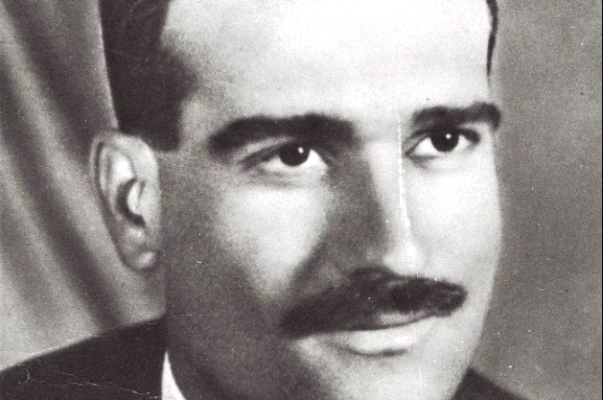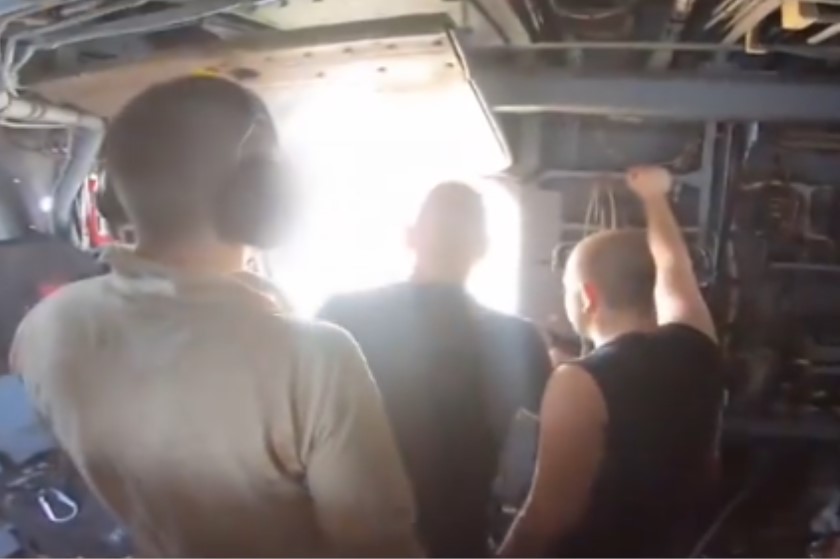ARTICLE AD BOX

Mossad spy Eli Cohen. (GOP)
(GOP)
Post-Assad era opens door for recovery of legendary Israeli spy
Beyond the search for Cohen’s remains, Israeli negotiators are also reportedly pursuing a broader agenda that includes locating missing soldiers from the First Lebanon War.
A rare opportunity for Israel has presented itself following the ouster of Syrian dictator Bashar Al Assad. According to the Lebanese-based Al-Akhbar newspaper, Israel is holding negotiations with Syrian and international bodies in an attempt to locate the body of legendary spy Eli Cohen.
Cohen’s espionage career stands as one of the most remarkable chapters in Israeli intelligence history.
Born in Alexandria to Syrian Jewish parents, he possessed a natural gift for languages, speaking Arabic, English, and French fluently.
After receiving initial espionage training in Israel in 1955, he returned to Egypt, only to be expelled along with other Jews in the wake of the Suez Crisis.
He subsequently settled in Israel in 1957, working as a translator and accountant before being recruited again by Israeli intelligence in 1960.
In 1961, Cohen was dispatched to Buenos Aires by the Mossad under the alias Kamal Amin Thaabet, posing as an expatriate Syrian businessman.
There, he methodically built relationships within the Syrian expatriate community, including future Syrian president Amin al-Hafez.
These connections proved invaluable when Cohen relocated to Damascus in 1962, where he rapidly ascended into the highest circles of Syrian society and government.
His influence peaked during the 1963 Ba’athist coup, when several of his Argentine contacts seized power. So trusted was Cohen that al-Hafez reportedly considered him for deputy minister of defense.
He attended classified military briefings and was granted access to strategic Syrian fortifications in the Golan Heights, all while transmitting crucial intelligence back to Israel.
Despite repeated warnings from his handlers, Cohen maintained regular radio transmission schedules. Syrian counterintelligence eventually traced his signal and arrested him in January 1965.
Following a military trial, he was publicly hanged in Damascus’s Marjeh Square four months later. To keep his remains out of Israeli hands, Syrian authorities have purportedly moved Cohen’s body multiple times over the years.
Beyond the search for Cohen’s remains, Israeli negotiators are also reportedly pursuing a broader agenda that includes locating missing soldiers from the First Lebanon War.
While Zachary Baumel’s remains were returned to Israel in 2019, the whereabouts of Yehuda Katz and Zvi Feldman, who died during the 1982 Battle of Sultan Yaaqoub, remain unknown.
The negotiations also touch on Syria’s Jewish heritage, with Israel seeking to preserve what remains of the community’s historic sites and cultural treasures.
According to Al-Akhbar, roughly half of Syria’s Jewish sites have been destroyed, and numerous sacred artifacts, including ancient Torah scrolls, have vanished. Some of these religious items have since surfaced in Turkey.

 1 week ago
37
1 week ago
37









 English (US) ·
English (US) ·